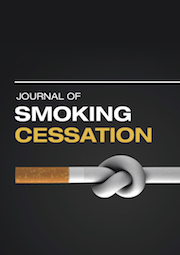Article contents
A single-blind clustered randomised controlled trial of daily record-keeping for reducing smoking tobacco expenditure among adult male household heads in rural Bangladesh
Published online by Cambridge University Press: 16 March 2020
Abstract
This study aims to assess the impact of a behavioural intervention, in the form of a self-monitoring record-keeping logbook, in reducing smoking tobacco expenditure amongst adult male household heads in rural Bangladesh.
The experiment was designed as a single-blind clustered randomised controlled trial utilising two-stage random sampling. A total of 650 adult male household heads were sampled from 16 chars (riverine islands) from Gaibandha, Northern Bangladesh, with eight chars in treatment and control groups each, between November 2018 and January 2019. The intervention consisted of a logbook to record daily smoking tobacco intake for 4 weeks provided only to participants in treatment chars (n = 332) while households in control chars received nothing (n = 318).
Final analysis was conducted using 222 and 210 households in the treatment and control chars respectively. The logbook intervention had a significant impact (P-value = 0.040) on reducing daily tobacco expenditure by 14% (α = 95%; CI: −0.273, −0.008) for the treatment group relative to the control group based on a difference-in-difference estimator. This is equivalent to a reduction of 20 cigarettes or 140 bidis smoked in a month.
Our minimal contact intervention successfully induced a reduction in smoking tobacco expenditure, which could effectively be incorporated with existing programs in the char regions of Bangladesh.
- Type
- Original Articles
- Information
- Copyright
- Copyright © The Author(s), 2020. Published by Cambridge University Press
References
- 1
- Cited by


